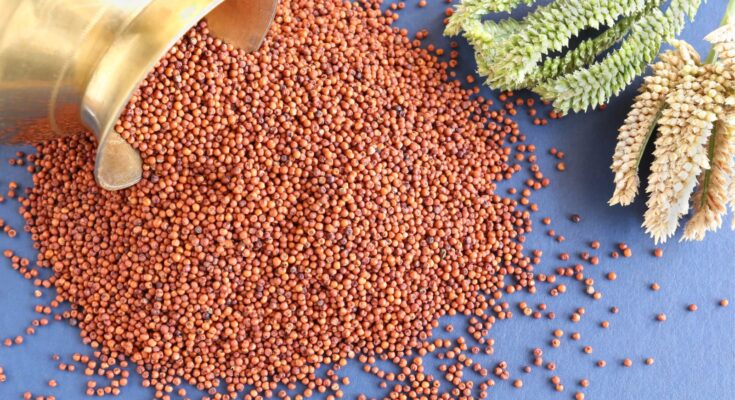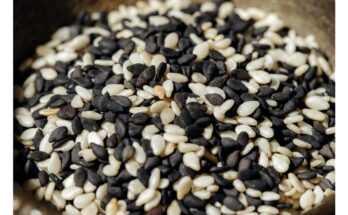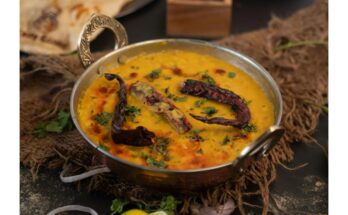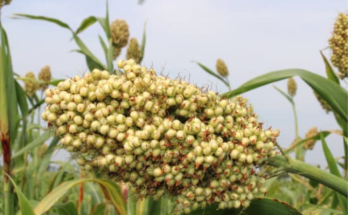Finger millet or ragi is another important millet cultivated in India. As with other cereals, hybrid varieties have been developed, which give yields, are disease resistant, and nutritious. The grains of finger millet are very small in size, varying in diameter from 1 to 2 mm. They vary in colour from deep brown to shades ranging from red to almost black. There is also a race of ragi that gives white seeds.
Uses: Ragi is the principal food grain of the rural population in India, especially in the Southern region. It is usually converted into flour, and a variety of preparations like mudde, chapati, dosa, porridge, etc., are prepared. The grain is also malted, and the flour of the malted grain is used as a nourishing food for infants and invalids. Malting releases the amylases that dextrinize the grain starch. An added advantage of malting ragi is in the production of an agreeable odour developed during the kilning of the germinated grain. Malted ragi flour is called “ragi malt” and is used in the preparation of milk beverages. A fermented drink or beer is also prepared from the grain in some parts of the country.
The nutritive value of ragi is better than that of rice and other cereals. The husk forms 5.6% of the weight of the grain. The average composition is also follows: moisture, 13.1; protein, 7.3; fat, 1.3; carbohydrates, 72; and mineral matter, 2.7%. It is rich in calcium, phosphorus, and iron. The calcium content is higher than in the common cereals and millets. Though its phosphorus content is high, much of it (75 %) is present in the form of phytin phosphorus. It contains B vitamins. The major proteins of ragi are prolamins and glutelins, and they appear to be adequate in all the essential amino acids.
Nutritive value per 100g of Ragi:
Energy (kcal) : 328
Protein (g) : 7.3
Fat (g): 1.3
Carbohydrates (g) : 72
Crude Fibre (g) : 3.6
Vitamins:
Carotene (µg) : 42
Thiamine (mg) : 0.42
Riboflavin (mg) : 0.19
Niacin (mg) : 1.1
Folic Acid – Total (µg) : 18.3
Minerals (g) : 2.7
Calcium (mg) : 344
Phosphorus (mg) : 283
Iron (mg) : 3.9
Magnesium (mg) : 137
Sodium (mg) : 11
Potassium (mg) : 408




